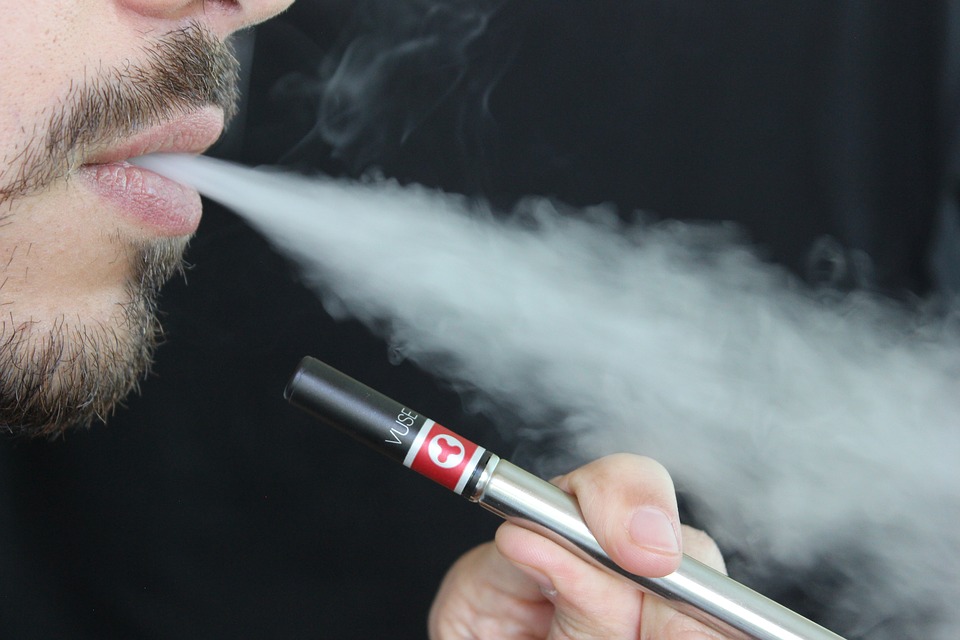State legislators across the United States are feeling the heat to distinguish e-cigs from combustible cigarettes that use tobacco. In Tennessee, a battle is raging over if and how to regulate e-cigarettes, a new alternative to smoking traditional cigarettes, whose popularity has led to a booming “vaping” culture and staggering profits.
Wells Fargo Securities analyst Bonnie Herzog, says that the e-cig industry is currently worth about $1.85 billion, and could surpass the profits of standard cigarettes within ten years.
A recent bill introduced to the Tennessee General Assembly, claims that vapor products are not tobacco products, therefore using a vapor product is not smoking. This distinction could not only keep states from taxing e-cigs like regular cigarettes, but it would also mean that users could “vape” inside areas that are labeled “smoke-free.”
E-cigs are made from a glass or plastic cigarette-like tube that contains a liquid cartridge and battery. The cartridge contains a flavored juice that is made of a variety of chemicals, including propylene glycol and tobacco-based nicotine, synthetic nicotine, or no nicotine. Juices come in a variety of flavors from “Cinnamon Swirl” to “Cappuccino.”
E-cigs are currently cheaper than traditional cigarettes. One cartridge refill costs $6 and often lasts for a week.
The FDA has made no official statement on the use of e-cigarettes. Research on the product has been contradictory and long-term studies are still incomplete. The U.S. Centers for Disease Control and Prevention has said, “e-cigarettes appear to have far fewer of the toxins found in smoke compared to traditional cigarettes, the impact of e-cigarettes on long-term health must be studied.”
It is this uncertainty that makes anti-smoking organizations across the nation nervous. Kevin Lusk, chairman of the Tobacco-Free Chattanooga coalition, tells The Chattanooga Times that the new bill is dangerous because it, “has the potential to evade smoke-free workplace regulations and may also pre-empt local governments from passing ordinances to prohibit the use of them.”
The time for state lawmakers to decide what an e-cig is and where consumers can use them is quickly approaching, as USA Today reports that sales have doubled every year since 2007. According to the nonprofit Americans for Non-Smokers Rights, as of January 2014, three states and 108 municipalities have banned e-cig use in smoke-free environments.
Along with an increase in sales, has come an increase in confusion about where people are permitted or not permitted to “vape.” Some state lawmakers have let private owners decide whether or not to allow vaping. Hotels, restaurants, and airports across the country, and even within the same cities, have different policies on where consumers can use e-cigs.
Hyatt Hotels have no policy on e-cig use in their lobbies or rooms. The McDonalds Corporation has no official policy on e-cigs for any of its locations and has left their use up to individual franchise owners.
For now, most e-cig users ask for permission before they vape in or outside an establishment. Whether they get a “yes” or a “no” too often depends on the hotel, the airport, the manager, and the area where they stand.


